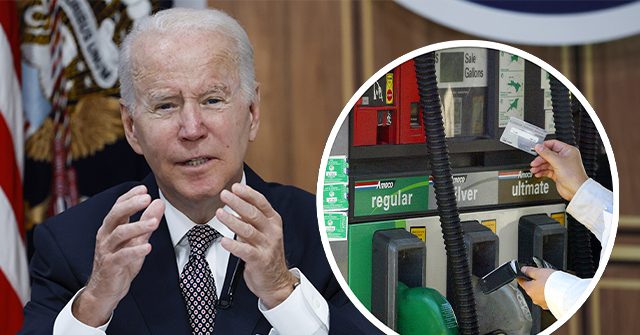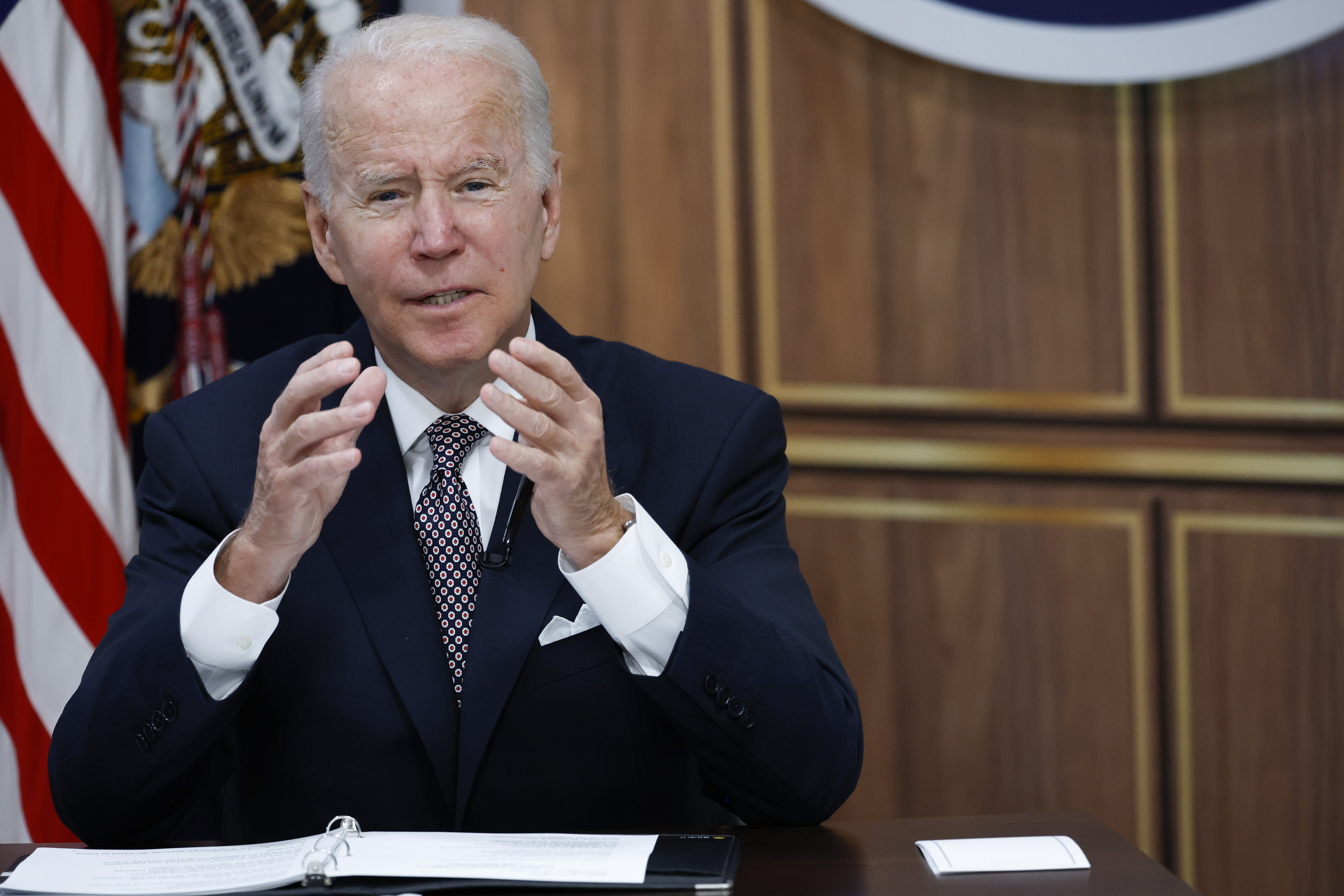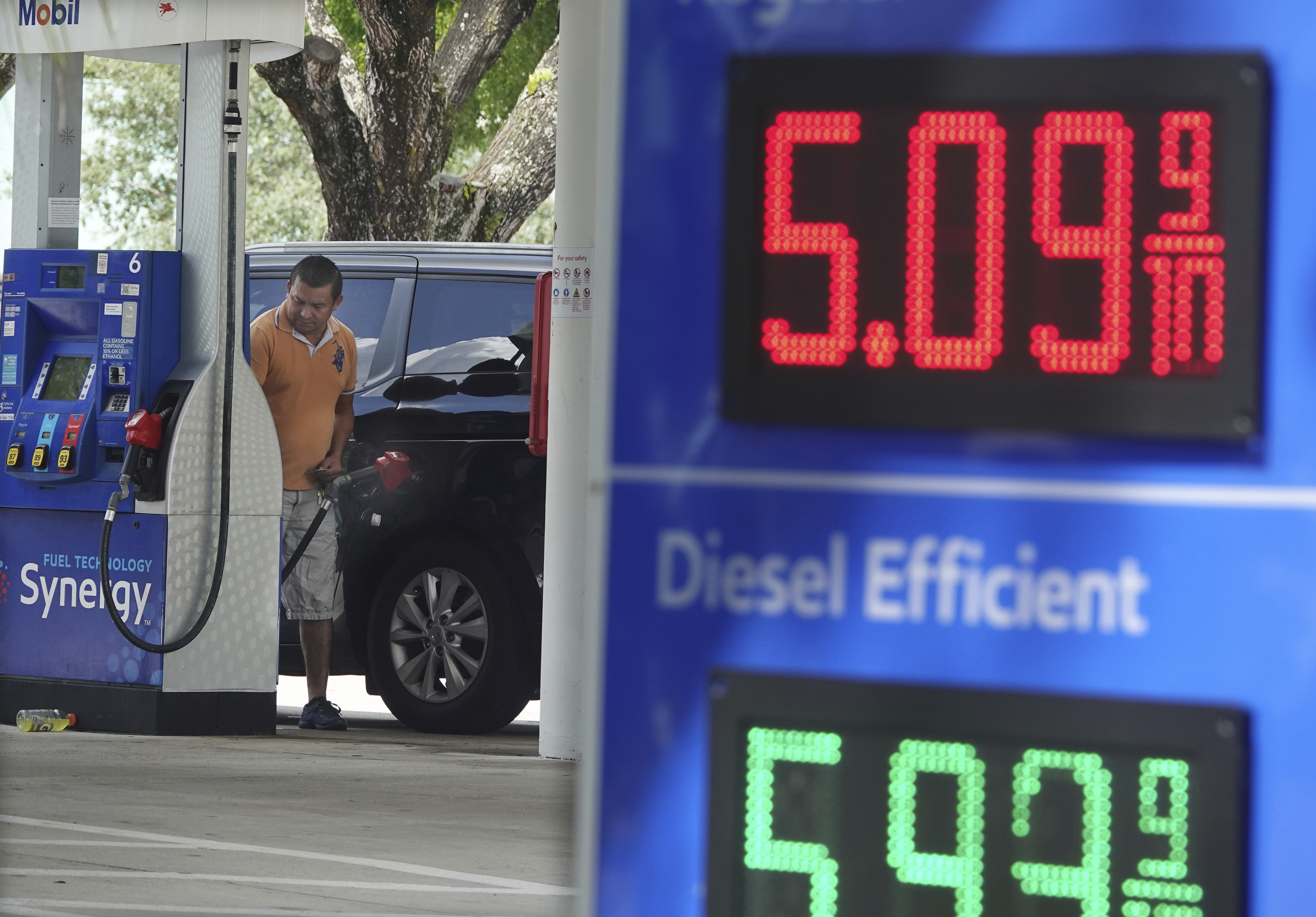
Our hats are off to whoever in the White House came up with the idea of sending people special debit cards for the purpose of buying gasoline. But not because this is a prudent policy. Quite the opposite.
It is one of the looniest policy ideas that we have ever heard. Yet it perfectly exemplifies the Biden administration’s approach to problems of public policy: when you encounter a problem, throw money at it.
Just in case anyone from the Biden administration is reading this—furtively, on a private server no doubt—let us explain why this is such a bonkers response to the problem of high gas prices. The price of gas has risen because demand has far outpaced supply.
How’d that happen? Let’s look to the supply side. We cut off Russian oil because of the invasion of Ukraine. We cut off Iranian oil long ago because Iran’s mullahs refuse to stop promoting terrorism and pursuing nuclear weapons. We cut off Venezuelan oil to avoid enriching its evil regime. And then we went ahead and knee-capped our own oil extraction and refining industry by promising to “end fossil fuels,” starving it of capital by threatening banks with “transition risk” regulation and promoting ESG investing (which we’ve called Cancel Culture for Fossil Fuels), shutting down pipelines and refineries, and generally being careless about the idea of energy independence.
The rest of the world’s oil extraction industry has also been starved of capital for many of the same reasons. As Breitbart’s Penny Starr reported recently, OPEC is consistently undershooting its quotas. President Joe Biden is planning on heading over to Saudi Arabia to ask for more oil, but it is pretty clear that there’s no quick path to fill the gap between supply and demand.
As it turns out, the multi-pronged campaign against the extraction and refining of oil has reduced the supply of oil that we can extract and refine.
For the first time ever, the price for a gallon of regular gas in Broward County is selling at some gas stations for more than five dollars, as seen at this Mobil station in Margate, Florida, on June, 12, 2022. (Joe Cavaretta/South Florida Sun-Sentinel via AP)
The demand side both here and around the world has been pumped up by pent-up demand for travel. After two years or so of being locked away, people want to fly and they want to drive. Commuting is back as more people return to the office, either full-time or part-time. What’s more, here in the U.S. households are sitting on a pile of excess savings left over from stimulus checks, suspended student loans, and depressed spending on services.
The last thing you would want to do in this circumstance would be to pump more money into the system. This is a recipe for higher gas prices. Even more, it’s a recipe for higher prices all around. As the May retail sales figures indicated, high and rising gas prices are actually subtracting demand from other parts of the economy. Record high gas is arguably a deflationary force right now because it takes up income that would otherwise be spent on other goods and services. If the government steps in to fill the gas tanks, those dollars will chase other goods and services. So inflation gets worse.
Fortunately, the Biden administration’s inflationary scheme was stopped by two factors. First, they could not figure out how to make sure people were not using the Biden Bux to buy scratch-off lottery tickets, vape cartridges, beer, soda, chips, and the like. Of course, even if you could restrict it to gasoline purchases only, it would make no difference. Money is fungible. So if the government is going to spring for the gasoline, that just leaves consumers with funds leftover for the other stuff they want—which is one of the reasons the program is inflationary.
The second factor is that they figured out they could not source the microchips they would need to make the Biden Bux cards work—which means that, perhaps for the first time in history, a shortage is actually helping keep prices lower.
The Washington Post story on this says that there was also a third concern that such a huge national spending plan would presumably need to be authorized by Congress. But that concern seems unlikely because this administration has found so many ways to accomplish its goals without Congressional authorization; it would seem odd that they would suddenly get shy about flouting the constitution now.

President Joe Biden speaks during the virtual Major Economies Forum on Energy and Climate (MEF) in Washington, DC, on June 17, 2022. (Ting Shen/Bloomberg via Getty Images)
There’s a good reason the Biden administration has found itself reaching for clownish ideas like this to address escalating gas prices. The more commonsense approach of encouraging more oil production in the U.S. is basically off limits to them. The base constituency of the administration will not tolerate anything that would make oil drilling more rewarding and therefore attract more investment. Capitol Hill Democrats are already threatening so-called windfall taxes on oil companies. So increasing the supply through domestic production is off the table.
It is a bit of a mystery why the Democratic left hates domestic production so much more than foreign production. Why is it okay to ask OPEC to extract more oil but not to incentivize U.S. drillers? This is not a matter of pollution, where local production might seem especially dangerous. It is said to be a matter of emissions that contribute to global climate change, which should make the location of production irrelevant. One cannot escape the feeling that there’s an almost religious impulse at work. Oil production is a sign of impurity. If it must be done, let it be left to those outside of the faith.
It appears that the republic is safe from this idea of fighting inflation by handing out money—for now. The Washington Post reported that this is actually the second time this idea has been considered at the highest levels of our government. So you cannot rule out a third go at it. After all, one of the definitions of insanity is trying the same thing over and over again and expecting a different result.


